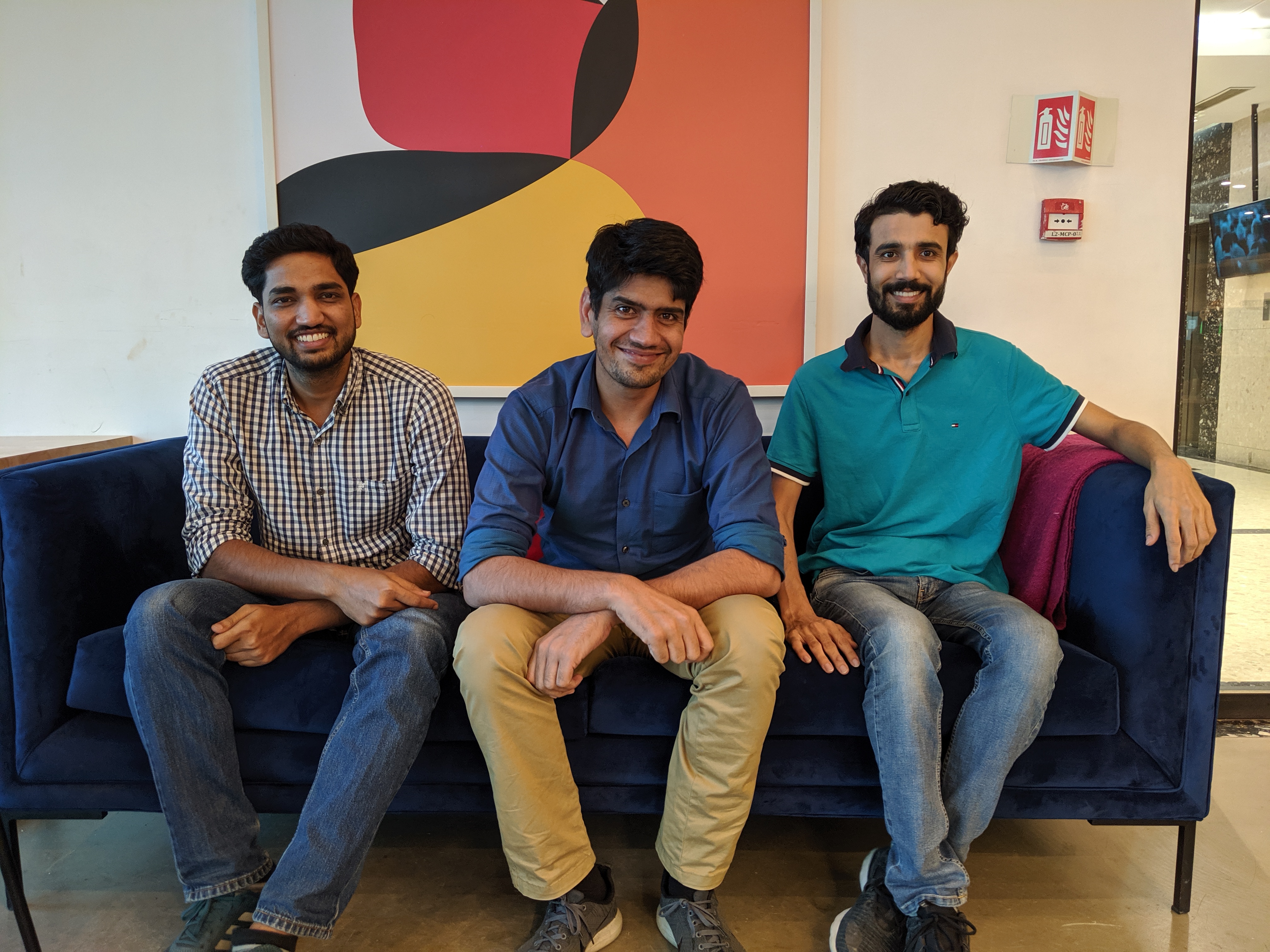In 2018, three years after entrepreneur Lal Chand Bisu sold his edtech startup Easyprep to Mumbai-based exam preparation platform Toppr for an undisclosed amount of money, he got hooked on listening to audiobooks and podcasts.
That was also the time when Bisu was looking for ideas for a new startup, as he had been working as Toppr’s lead engineer since 2015.
He, along with two other colleagues—now his co-founders—decided to test their theory regarding how serious people in India were when it came to podcasts. They ran a survey and found out that not only were people looking for new podcast channels, they were also ready to pay for exclusive content available in vernacular language.
“Once we realized that a podcast channel in regional language could be a game-changer, since there weren’t many players in this space, we jumped right in,” Bisu, co-founder and CEO at Kuku FM, told KrASIA.
To get started, Bisu, together with Vinod Meena and Vikas Goyal, put in their own money and began developing a new podcast app. After only three months, it was ready for beta testing.
“When we checked our user engagement rate in September 2018, and found that users were listening to our audiobooks for 40 minutes per day, that excited us, and we started approaching investors,” Bisu said.
The company managed to raise a small pre-seed round of funding by the end of 2018 that allowed them to run for 12 months. The firm then raised an undisclosed amount of seed funding earlier this month from 3One4 Capital, Shunwei Capital, and India Quotient. The cash will be used to expand its content library and user base, Bisu said.
He said people are now willing to consume content such as poetry, investigative stories, mythological stories, and game shows in audio format, making podcast distribution platform appealing to users in India.
Targeting mature users
Unlike other internet-based entertainment companies that are going after first-time internet users in smaller cities, Kuku FM believes targeting such users will take a longer time to monetize, so it’s specifically going after professionals, students, and retirees who are looking for quality content.
“First-time users come on to the internet for instant gratification and mostly use services like TikTok and YouTube, and are not willing to pay for content,” Bisu said.
Currently, around 85% of Kuku FM users are from India’s tier-1 and tier-2 cities. Bisu said that after a while, when first-time users realize they are wasting their time and will start looking for meaningful content, his company will target them as well.
“Podcast users are busy professionals who want meaningful content in their life and choose podcasts because it’s not as intrusive or as time-consuming as books. Plus, we can add rich content in podcasts to make the experience better than reading books,” he added.
Kuku FM has been partnering with publishers to gain intellectual property rights and create audio content from popular published books. He did not reveal the names of publishers that the company is in talks with due to competitive reasons. However, the platform features books such as Rich Dad, Poor Dad, The Secret, and the Bhagwat Gita in audio format.
The company has an eye on monetization and that is one reason why it’s going after the demography that already spends money online. “People who have already subscribed to platforms such as Netflix, Amazon Prime, Spotify, and YouTube will have no problem paying for exclusive content on our platform when we start monetizing,” Bisu said.
The content on its platform is a mix of audiobooks, poems, news, jokes, standalone ghost stories, mythology, and more. Bisu claimed the platform has over 2,100 podcasts and that around one million users have accessed. He also said that, on average, people spend around 50 minutes a day on Kuku FM, on its app as well as the website, listening to and browsing different podcasts.
Kuku FM also allows users to generate their own content on the app, which Bisu claimed has an “advanced audio-editing tool that can cut 90% of the noise, change voice tempo, and add background music to give a professional feel to the user-generated content.”
Currently, there are around 800 users who create and upload their own podcasts onto the platform in various genres. On top of that, Kuku FM works with around 200 professional radio jockeys who create podcasts out of novels and short stories that the company acquires from publishers.
“The plan is to create a substantial number of podcasts that are exclusive to us before we start monetizing these audiobooks,” Bisu said. He is looking at 2021 as the year when the company will actively monetize its content. It will even add new categories such as audio tutorials for generating revenue.
At the moment, content on Kuku FM is only available in Hindi. The startup will use its recent funding to add two more languages to its platform in the next six months. “Hindi is still a pretty big market to capture, considering there are a few other players such as Khabri, and Headfone doing exactly what we are doing,” he said.
While Bengaluru-based Headfone raised USD 750,000 from Fosun RZ Capital in a seed round in July, Khabri was chosen for Y Combinator’s summer batch this year. Apart from these firms, self-publishing platform Pratilipi is also entering the podcast and audiobook market after raising USD 14 million from Qiming Ventures this year.
Bisu will compete with all these companies that want a share of users’ time.
This article is part of KrASIA’s “Startup Stories” series, where the writers of KrASIA speak with founders of tech companies in South and Southeast Asia.
